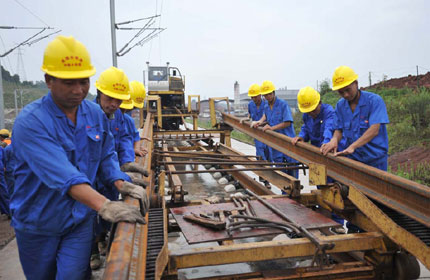Hong Kong at the crossroads
Updated: 2014-07-01 07:37
By Dan Steinbock (China Daily)
|
|||||||||||
Until the global crisis of 2008/9 Hong Kong's growth record remained fairly strong, thanks to the peaceful post-handover transition which ensured stability, China's membership in the World Trade Organization in 2001, which energized trade and investment, and Hong Kong's strengths as a financial intermediary for Chinese companies and investors.
By 2013, Hong Kong's per capita income was one of the highest in the world, over $52,700, 30 percent higher than in the UK.
Without the mainland, living standards in Hong Kong would be far lower.
Hong Kong's major business leaders believe their beloved city is losing its spirit. Among others, former Hong Kong banker Joseph Yam Chi-kwong has warned the city could lose its status as China's top financial center if political developments undermine past progress.
Meanwhile, Hong Kong's traditional assets - free trade, investment and finance - are spreading in the mainland through free trade zones, starting in Shanghai.
Further integration with Guangdong province could alleviate the challenges associated with Hong Kong's maturing economy and aging population. However, such a measure is often opposed by the same political interests that supported the referendum.
There is a huge discrepancy between Hong Kong's economic gains and its eroding social fabric. Today, its income inequality is worse than in Zimbabwe and Paraguay, as measured by the Gini Index, despite three decades of rapid catch-up growth, two decades of mainland reforms, and another decade of mainland's rapid trade, investment and financial development.
This polarization, however, is not the result of economic integration with the mainland, but inadequate social cohesion in Hong Kong.
What Hong Kong needs is steady political development, adequate social policies and further economic integration.
The author is research director of International Business at India China and America Institute (USA) and Visiting Fellow at Shanghai Institutes for International Studies (China) and the EU Center (Singapore).
Related Stories
'Occupy Central' unacceptable 2014-06-30 08:22
'Occupy Central' poll a folly 2014-06-28 07:16
Confrontational 'Occupy Central' is self-defeating 2014-06-25 06:58
'Occupy Central' poll ignores reality 2014-06-24 07:11
Today's Top News
China, Germany join hands to drive growth
Meet foreigner breed of workers
Product placement deal backfires
From Westlife to the East
Gambling costs World Cup fans their lives
US supports Ukraine's decision to suspend ceasefire
It's all about making a spectacle
China likely to see 7.5% growth in second quarter
Hot Topics
Lunar probe , China growth forecasts, Emission rules get tougher, China seen through 'colored lens', International board,
Editor's Picks

|

|

|

|

|

|





